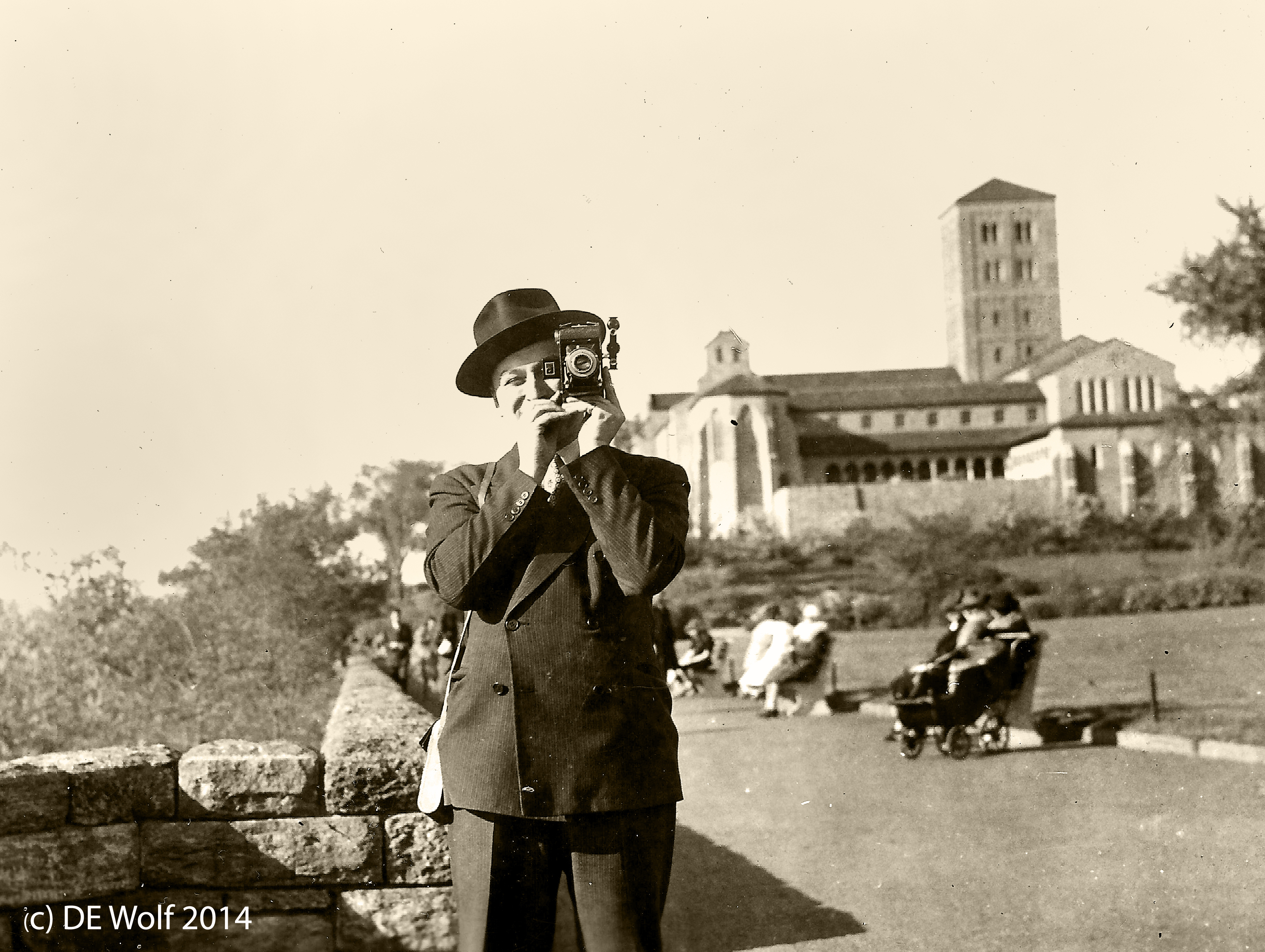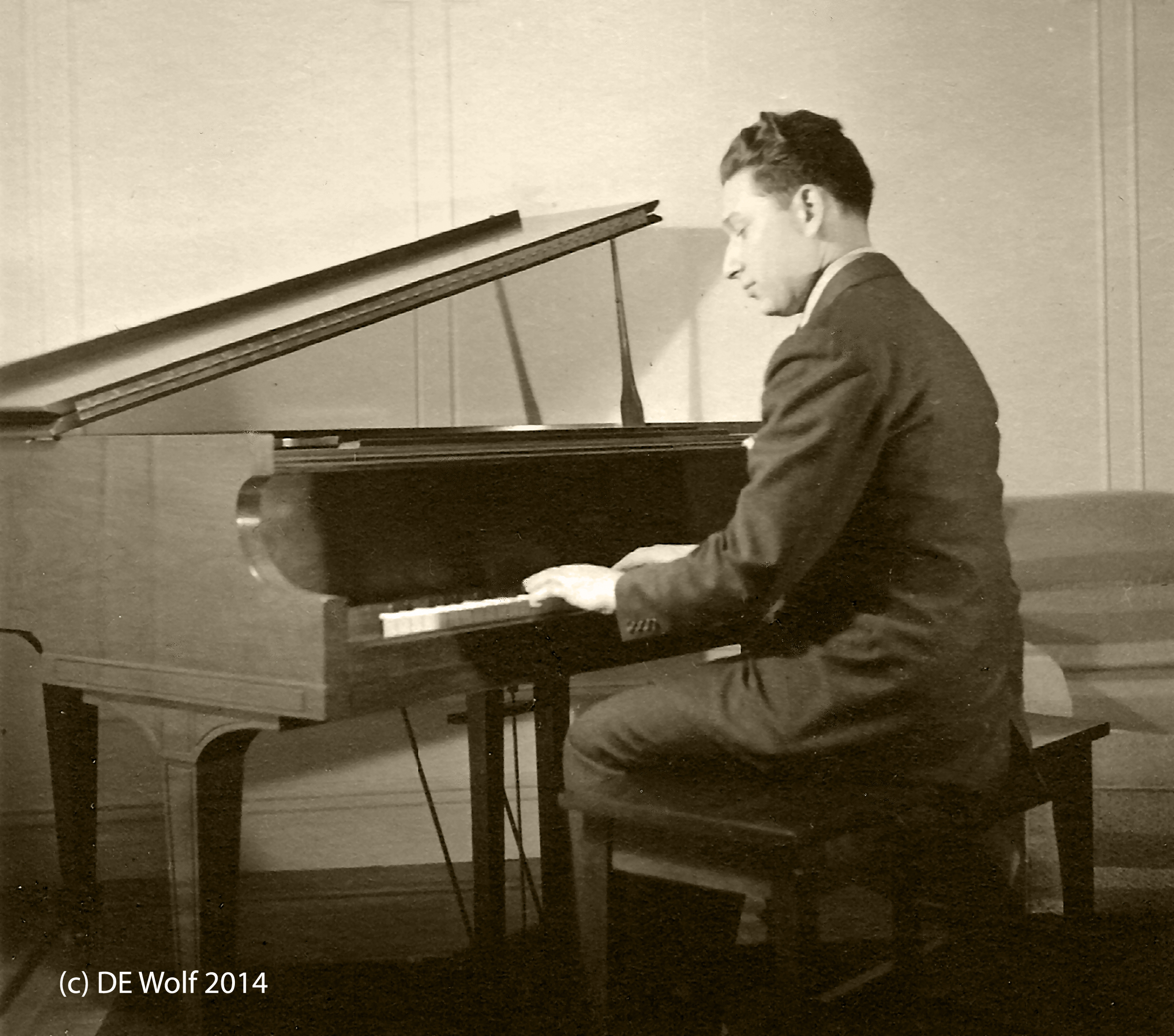Today is Fathers’ Day; so I thought that I would share a couple of photographs with you. The dapper young man in Figure 1 is my father Hyman Wolf around 1930. His mother called him Hymie and his friends called him Hy. The joke, of course, was always: “Hi Hy.” New Yorkers will probably recognize the location of the photograph as The Cloisters in Fort Tryon Park.
My father took my sister and me to museums just about every weekend, and The Cloisters was one of his and our favorites. He had an amazing encyclopedic knowledge of things especially the nature world. He was a gifted and inspiring science teacher at Charles Sumner Junior High School 65 in Manhattan, for most of his career. Often at the American Museum of Natural History we would find that we were being followed by other families listening in to my father’s explanations. I credit my father for teaching me to ask why.
I have to apologize for the quality of the photographs. My father took his photographs with a beloved Ciroflex twin lens reflex camera that was 2 1/4 ” by 2 1/4 “. He made contact prints or had contact prints made. So they stayed that size and looking at them now, they really aren’t very sharp.
I also wanted to share Figure 2. It shows my father again as a young man here in recital on the piano. He had a great love of music that lasted all his life.
Taken together the two figures here illustrate an important point about the role of photography as documents in our lives. We have spoken about how they transverse time and give us a glimpse of how people were then. But it is always significant to recognize that it is ever a construction. We are not seeing people how they really were but as how the photographer saw them, or in some cases how the subject wanted to be seen.
I have chosen these two photographs because I think that they would have made my father smile. They represent, I think how he would have liked to be seen, as he saw himself.
I owe a huge debt to my father. When I reached college, we would discuss physics specifically quantum mechanics and relativity theory for many hours. My father just wouldn’t follow or accept it. Somewhere along the way I had passed him, at least in these subjects. It felt strange like the first time that I beat him at chess. I never knew if I really beat him or if he allowed me to beat him. I do know that in my father’s library there was a little John Dent edition of Ivan Turgenev’s “Fathers and Sons.” I took it down and read it when I was in college. Beating your father at chess is inevitable. He does it because he loves you. So today I plan on flavoring my meat with rosemary.



I remember coming in to the apt in Manhattan and saying hi. Your father kept saying, “yes” and laughing at the joke.